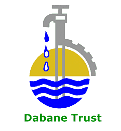Varies Banda (41), a mother to two young girls (10yrs and 8yrs) remembers a time when she dug for water on the sandy riverbed that feeds into the Nathi sand dam. Like her, many within Sifanjani village would either walk for 6-7 kilometers to the water point for one or two buckets of clean water or dig 0.2m deep scoop wells for the contaminated water closer to home.
Varies narrated saying, “Most women chose to dig wells along the river because of the many duties that would be awaiting them at home. Walking for long distances would mean leaving our homes and children several times a day for long periods to walk long distances and fetch water”.
According to Varies Banda the daily pressing water issue divided men and women in the village as community members scrambled for the little water that was available. She recalled a time when one of her goats were hit with a stone and severely injured after a community member attacked it for trying to drink from one of the scoop wells that he had been dug for his own livestock.
Varies said, “I ended up slaughtering my goat after a very long time of nursing it in the shed hoping it would get well again”.

Varies Banda (41), a mother to two young girls (10yrs and 8yrs) remembers a time when she dug for water on the sandy riverbed that feeds into the Nathi sand dam. Like her, many within Sifanjani village would either walk for 6-7 kilometers to the water point for one or two buckets of clean water or dig 0.2m deep scoop wells for the contaminated water closer to home.
Varies narrated saying, “Most women chose to dig wells along the river because of the many duties that would be awaiting them at home. Walking for long distances would mean leaving our homes and children several times a day for long periods to walk long distances and fetch water”.
According to Varies Banda the daily pressing water issue divided men and women in the village as community members scrambled for the little water that was available. She recalled a time when one of her goats were hit with a stone and severely injured after a community member attacked it for trying to drink from one of the scoop wells that he had been dug for his own livestock.
Varies said, “I ended up slaughtering my goat after a very long time of nursing it in the shed hoping it would get well again”.
When Dabane came through to Sifanjani village and the construction of the Nathi sand dam began Sifanjani community members were ready to work but the previous water birthed disputes where a huge hindrance to the productivity and achievement of team work results.
“People had a desire to work but they were just not ready to work together at first” said Varies.
As the sand dam construction project commenced, community members gradually started working together more closely. The goal to what they intended to achieve as a group with the help of Dabane started becoming clearer.
Varies said, “Before this sand dam was built team work was unheard of in this area, no one would water livestock for another person one even work with anyone in any water related issues. It was one man for himself”.
As the sand Dam building activities were ongoing the project participants also received training on health and hygiene. The training sessions further revived the unity in the area as the community members formed more than 3 health clubs which each had at least 8 or more members involved. Varies Banda was among the community members who were excited at the prospect of health clubs as it transformed her home.
“Everything that you see on display in this kitchen was bought as a result of the health clubs, I learnt the importance of having a clean kitchen and clean utensils”,Varies Banda said while pointing to her kitchen unit area.
As a result of the availability of water, Varies Banda also set up a garden 100m from the river bed on which the Nathi sand dam lies. Through the garden Banda ensures that she her family is provided with a nutritious diet and sometimes she gives her neighbours some of her produce to eat.
For Varies Banda, having water has been a life changing experience. “My children eat healthy. They do not have to eat the same type of meal every day and this makes me very happy”, she says.

